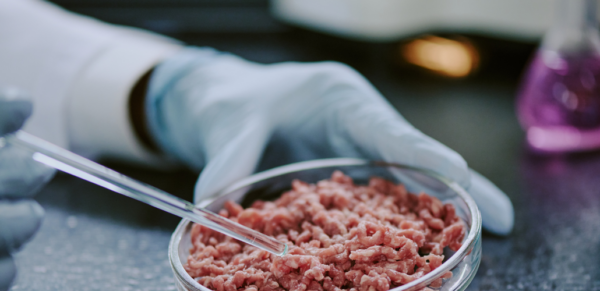Reduce, Consume, Compost

Food waste is a significant and avoidable contributor to climate change. According to the USDA, up to 40% of the U.S. food supply is wasted. That waste mostly ends up in landfills, where it produces methane – a powerful greenhouse gas that contributes to climate change. The good news is that the solutions to food waste exist and some are investable. Here are some of the ways Clean Yield invests to reduce food waste and strengthen composting programs and infrastructure.
In 2012, Vermont became the first state to enact mandatory composting legislation. Currently, only eight states have food scrap collection mandates or strong legislation to keep it out of landfills. These state mandates generate demand for composting services. At Clean Yield, several of our impact investments are directly or indirectly involved in composting. Boston Impact Initiative portfolio company CERO (Cooperative Energy, Recycling, and Organics) is a commercial composting company based out of Dorchester, MA. Guadalupe Gonzalez co-founded CERO to improve wages and working conditions for the “hidden” green economy workers like herself – a former commercial building cleaner who collected bottles to redeem for extra money. CERO describes itself as “unique as a bilingual, multicultural co-op.” It used a Direct Public Offering to raise capital “by selling shares of dividend-paying stock to regular community people,” as conventional lenders were hesitant to lend capital to lower-income green economy entrepreneurs. To date, CERO has diverted 11.86 million pounds of waste and saved customers $407,000 in trash-hauling expenses while providing rich soil to local farms. CERO estimates that it avoids 0.71 tons of CO2e (carbon dioxide equivalent) and sequesters (in soil) another 0.24 tons of CO2e for every ton of food waste that it composts.
Grow Compost of Waterbury, VT, is both a Vermont Community Loan Fund (VCLF) and Flexible Capital Fund borrower. Grow Compost produces organic compost for use in horticulture, landscape, land treatment, and residential venues. They also sell food waste to farmers as animal feed. Vermont’s Universal Recycling and Compost Law prompted Some Dude’s Compost Company to offer curbside compost pick-up services, resulting in a 300% increase in clients. The company came to VCLF for a loan to purchase a high-walled trailer to replace a smaller vehicle and allow for increased hauling capacity. Tamerlane Farm, a certified organic farm in Lyndonville, VT, producing milk, grass-fed beef, vegetables, and compost, also received several loans from VCLF. The loans helped finance a bucket loader and an aeration system, expected to triple compost production.
Fair trade cooperative Equal Exchange partners with a company to compost the ~450 pounds of chaff (skin of the bean) produced each week during the coffee roasting process. The company is also exploring compostable packaging options. Black Dirt Farm picks up and composts High Mowing Organic Seeds’ organic material left over from quality control testing, seed mill remnants, food scraps from its kitchen, and the occasional crop failure.
Composting is one of five key methods at the heart of regenerative agriculture. The farmers of Iroquois Valley Farmland apply these regenerative practices, which sequester carbon in the soil and heal local ecosystems. Organic Valley farmers add compost, manure, and mulch to increase the organic matter in their soil, improving moisture retention, which is critical to surviving ever more frequent droughts. Root Capital launched a campaign to help farmer-members of Triunfo Verde in Mexico renovate their farms and enrich their soil using organic, compost-based fertilizers that boost yield and reduce runoff as part of a strategy to combat climate change.
Composting is great, but reducing food waste is also important. Fresh Source Capital has invested in two companies doing just that. Imperfect Foods collects and sells produce with cosmetic quirks or irregular sizes rejected by grocery stores and that would have ended up in the waste stream. Spoiler Alert helps businesses all along the food supply chain to better manage their excess food inventory, preventing food waste and diverting it from landfills.
For these solutions to put a dent in climate change, they will need to scale up with the support of consumers, lawmakers, and investors. We invite you to reach out if you are interested in exploring ways to invest to reduce food waste and grow compost.
More News & Insights
A New Kind of Meat
Through Clean Yield’s U.S. Sustainable Investment Forum membership, Liz Levy attended a meeting to gain insights on the emerging cultivated meat industry.
Stock Profile: SoFi Technologies
SoFi Technologies, originally named Social Finance, Inc., by its founders, contributes positively to financial inclusion and social well-being by expanding access to affordable financial services through its digital-first platform.
Quarterly Market Outlook: January 2026
As we enter Q1 2026, Clean Yield’s Liz Levy provides a review of what happened in Q4 2025, what we are watching this coming quarter, and how we are positioning our clients for success.


